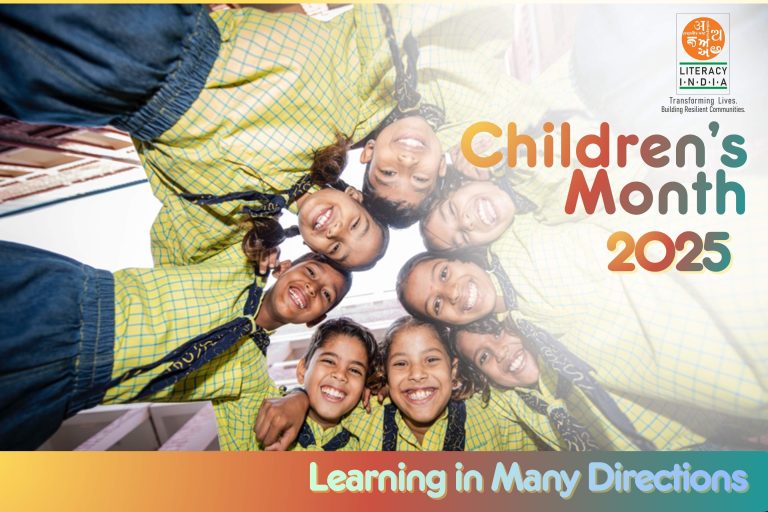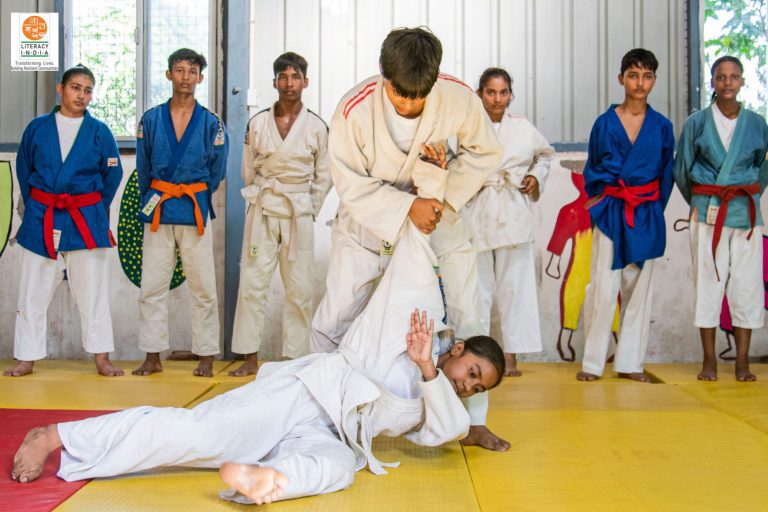Literacy India has always believed that technology will be able to help take forward the mammoth task of making education accessible to underprivileged sections of society. The Covid-19 pandemic and the consequent phases of lockdown in the country that hit us towards the fag end of 2019-20 have further highlighted the importance of technology. Even prior to the pandemic technology has played a pivotal role in all our projects, including GDD, the virtual classrooms and remedial education. In fact, we have successfully used the internet and related applications in capacity building. In our journey of 25years, we have touched half a million lives , a task that was achievable due to digital intervention.
‘Secure Borderless Workspaces’, an innovative model that is independent of the student’s location, has already been extended to West Bengal, Rajasthan, Pune, Uttarakhand, Gujarat, Tamil Nadu, Uttar Pradesh, Jharkhand and so on. The model involves the use of a standard service delivery environment, cloud-enabled governance processes, heavy use of digital collaboration tools, and an internal operations monitoring center. Students and teachers are now accustomed to working in this environment, where the centres across regions are connected through Skype and Microsoft team meetings. Going forward, a cloud-enabled governance process will also be developed to ensure that the internal system is made stronger.
One month’s groundwork was required to get the beneficiaries accustomed to the virtual space. Teachers were trained to use the internet, Skype, Google classroom, Google Duo, Zoom App and Gyantantra Udbhav. Literacy workshops were held, and students were also shown how information available on the internet, like YouTube videos, can be used to learn about latest developments.
Hence, when the schools suddenly closed on account of the pandemic, we were well placed to quickly create a digital learning environment, which was made accessible to LI’s beneficiaries. Applications like Zoom, Google classroom and WhastApp were used. Parents and students who possess smartphones were made aware of its usages and were encouraged to be involved in virtual learning and virtual training classes. Of 1,200 students in Vidyapeeth project, around 500 to 600 children were successfully mobilized during the lockdown.
The process of making use of technology and online marketplaces for the Karigari artisans was work in progress. The pandemic just hastened the process. Even as we write, artisans centres are being equipped with smartphones and artisans are being trained on how to operate WhatsApp, Google classroom, Google Duo and Zoom. Classes were held on these online platforms, and the students were also being trained on using the information on the internet to enhance their skills.
With consistent practice, many even went on to sell their finished products on social media platforms. As the uncertainty of the days ahead loom large, we at LI are well prepared to continue out the outreach and penetrate the community deeper by banking on technology and creating digital agility with the system and all our programmes.




